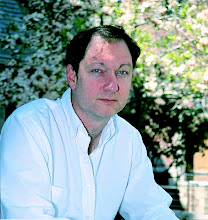Some leaks in one case for justifying higher tax rates
A summary of Frank's argument is in order. He claims that many of the goods we buy are "positional." In other words, their value to those who own them depends strongly on relative position rather than anything absolute. Frank gives the example of a Ferrari Scaglietti, a car that sells in the United States for about $250,000. According to Frank, purchases of such cars and of 60,000-square-foot houses "subtly change the social frame of reference that defines what kinds of houses and cars seem necessary or appropriate." The people who buy such things up the ante on their purchases, and then the people "below" them do likewise, and so on down the income scale. Frank calls this alleged phenomenon an "expenditure cascade." In buying positional goods, the highest-income people, writes Frank, impose a negative externality on the people below them, who then, through their purchases, impose a negative externality on those below them, and so on. Frank advocates the standard economist's solution to a negative externality, which is a tax on the activity that generates the externality. Frank's favored tax is a tax on consumption, with a higher rate for those who consume more.
As a bonus, argues Frank, a government can tax high-income people even more than it currently does without making them worse off. How so? For simplicity, imagine a society in which there are a million people making more than $500,000 a year. Most of us would agree, I think, that those people have high incomes. Imagine that they now pay 30 percent of their income in federal income taxes. Now imagine that the government, following Frank's suggestion, imposes a tax on consumption above some amount per year and, thus, raises tax rates on high-income people so that those million people now pay 40 percent of their income in federal income taxes. Because their relative position with respect to each other would be unchanged, and because they spend so much money on positional goods anyway, they would not care--or so the argument goes. As Frank testified, "Thus, if a consumption tax led wealthy families to buy 5,000-square-foot houses instead [of] 8,000, and Porsche Boxsters instead of Ferraris, no one would really be worse off, and several hundred thousand dollars of resources per family would be freed up for more pressing purposes." . . . .
I won't speak for Frank, but while I would like a Porsche, a Ferrari would be even neater. Would I also like a bigger, newer house? Would I like these things even if everyone else wasn't jealous? I got an iPhone this summer, and I am very happy that I did. Did others like looking at it? Yes. But am I extremely happy that I have a smart phone that I can really effectively use all its features.
Well, David Henderson, doesn't always get things right, but, apparently, there were some problems with the original evidence that Frank used to make his point. One piece of supposed evidence: Employee salaries at the University of Michigan don't show the variation that they should if salaries vary with productivity. However, there are two very obvious problems with this as Henderson points out: 1) public institutions, just as with unions, compress wages. Anytime you let wages be determined by votes you tend to get that outcome. 2) University professors get paid in lots of ways other than salaries. Henderson points to other data problems here.







1 Comments:
Sounds Communist. Funny how so much of what comes out of academia these days is supportive of Marxism.
I suppose that being alive imposes a "negative externality" upon the dead, and that those of us who are alive would be none the worse off if we were dead ourselves.
Perhaps Frank would like to tax us to death, which would have the beneficial effect of freeing up the resources that keep us alive. He's an apologist for kleptocracy! His basic premise is simple: if you spend less on what he has decided that you don't need, then there will be more for the government. What a horribly bad idea.
Post a Comment
Links to this post:
Create a Link
<< Home